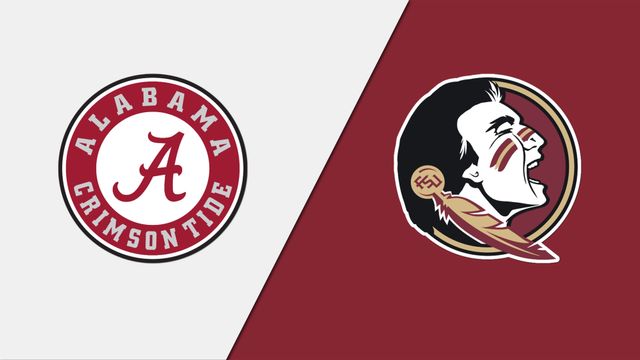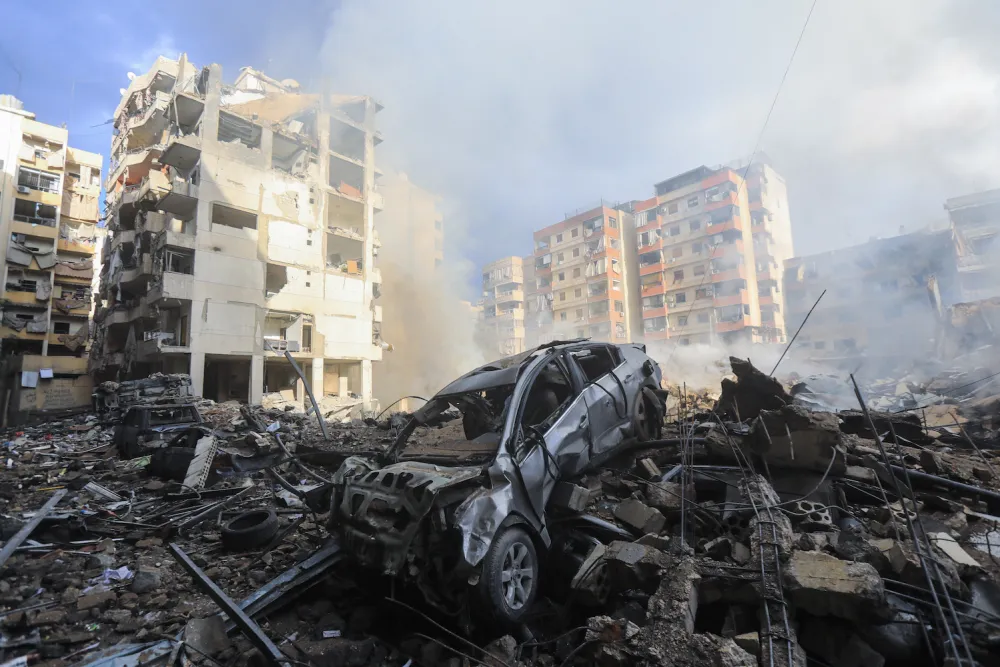Almost a year since the Israel-Palestine conflict boiled over on Oct. 7, the Israel Defense Forces (IDF) launched a ground invasion into Lebanon. Similar to Palestine, Lebanon has had its fair share of violent interactions with Israel over the past 50 years.
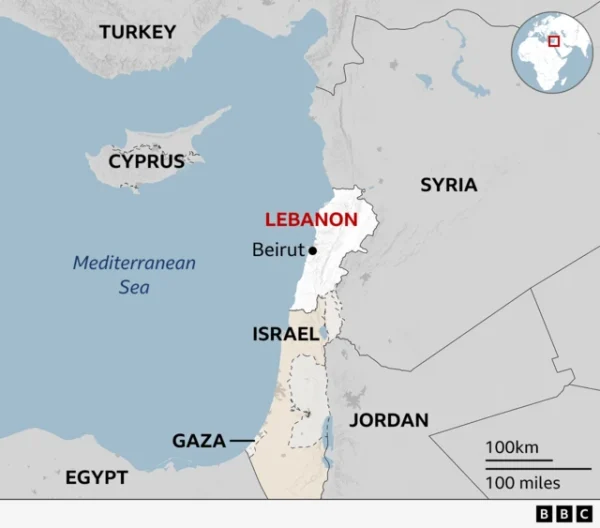
In the late 1940’s, Palestinian refugees fled from Palestine to Lebanon in light of the creation of the state of Israel. Lebanon built refugee camps in order to properly house the over 100,000 Palestinians who were forced to leave their homes. Although they were welcomed into Lebanon, the refugees’ religion affected the country’s government.
Lebanon’s government is best described as “unstable” and “corrupt,” with war, neighboring countries, and religion heavily influencing it. Lebanon is separated into 18 religious sects. Although their constitution, drafted in 1943, states that all would get equal representation, military aid, and civil service, this hasn’t seemed to be true. Corruption runs deep in Lebanon’s authority. The ruling political parties are said to be funneling money from state institutions into their own pockets. The three main positions in their government system are president, prime minister, and speaker. The positions are currently filled by a Christian, a Sunni Muslim, and a Shia Muslim. When the refugees from Palestine began to be included in the country’s population, the Sunni Muslim population grew. This, in turn, made the Shia Muslims feel marginalized.
Hezbollah, which is a name you’ve probably heard in the media recently, is a Shia Muslim militia group based in Lebanon. It’s backed by Iran and is considered the largest non-state group within the entire Middle East. The group has been labeled a terrorist organization by many countries, including the United States. It was founded during Lebanon’s 15-year-war against Israel in the 1980’s with its main enemy being Israel. In 2009, Hezbollah released a manifesto in which they reinstated their goal to “destroy Israel.” Hezbollah also has had major influence within Lebanon’s government as eight of their members were elected into the country’s parliament.
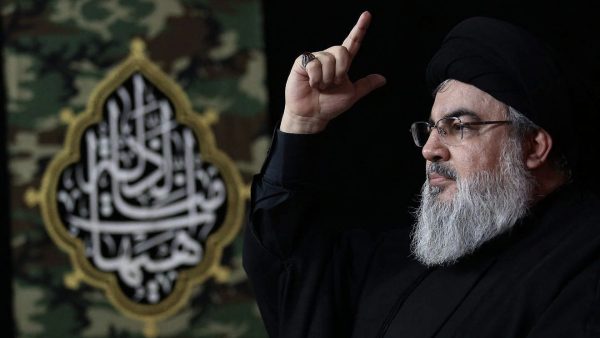
On Sept. 17, 2024, the IDF planted explosives in batteries sold to Hezbollah to power their pagers and walkie-talkies. The “Pager Attack” killed 37 people, including children, and injured nearly 3000 people. Hezbollah was blindsided, and Israel officials have yet to comment on the losses.
On Sept. 27, 2024, the IDF announced that they had killed Hassan Nasrallah, Hezbollah’s leader since 1992, along with six other high ranking officials. The group’s deputy secretary general as of 1991, Naim Kaasem, has been elected as their new leader as Israel continues to attack Lebanon.
Israel’s Next Steps
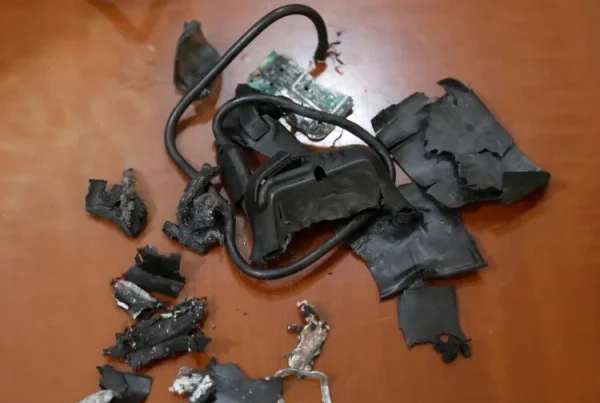
Israel’s prime minister, Benjamin Netanyahu, held a press conference in very early September. Despite what many were hoping for, he made no comment about a ceasefire. He did, however, present his “plan for Palestine.” Reports say, “Netanyahu does not want Israel to be bogged down in managing the affairs of more than two million civilians it plans to keep displaced…”
What does this mean? It likely means that no Palestinians will be allowed to return to their homes, and reconstruction will never happen. As for the West Bank, the map Netanyahu presented showed it completely within Israel’s borders. With the recent invasion of Lebanon, people are forced to ask: Where will Netanyahu stop?
Much like what’s been happening in Palestine, Israel is exploiting Lebanon’s instability and internal conflict in order to gain more control, land, and power.
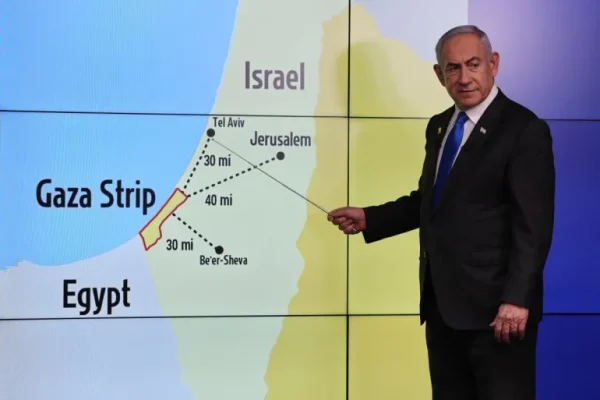
(Abir Sultan/AFP)
Works Cited:
- “Israel concealed explosives inside batteries of pagers sold to Hezbollah, Lebanese officials say.” CNN, 27 September 2024, https://www.cnn.com/2024/09/27/middleeast/israel-pager-attack-hezbollah-lebanon-invs-intl/index.html.
- “Lebanon’s politics and politicians.” Chatham House, https://www.chathamhouse.org/2021/08/lebanons-politics.
- Maizland, Lindsay. “What Is Hezbollah?” Council on Foreign Relations, https://www.cfr.org/backgrounder/what-hezbollah.
- “The history of conflict between Hezbollah and Israel.” Al Jazeera, 18 September 2024, https://www.aljazeera.com/news/2024/9/18/hezbollah-and-israel-a-timeline-of-conflict.






